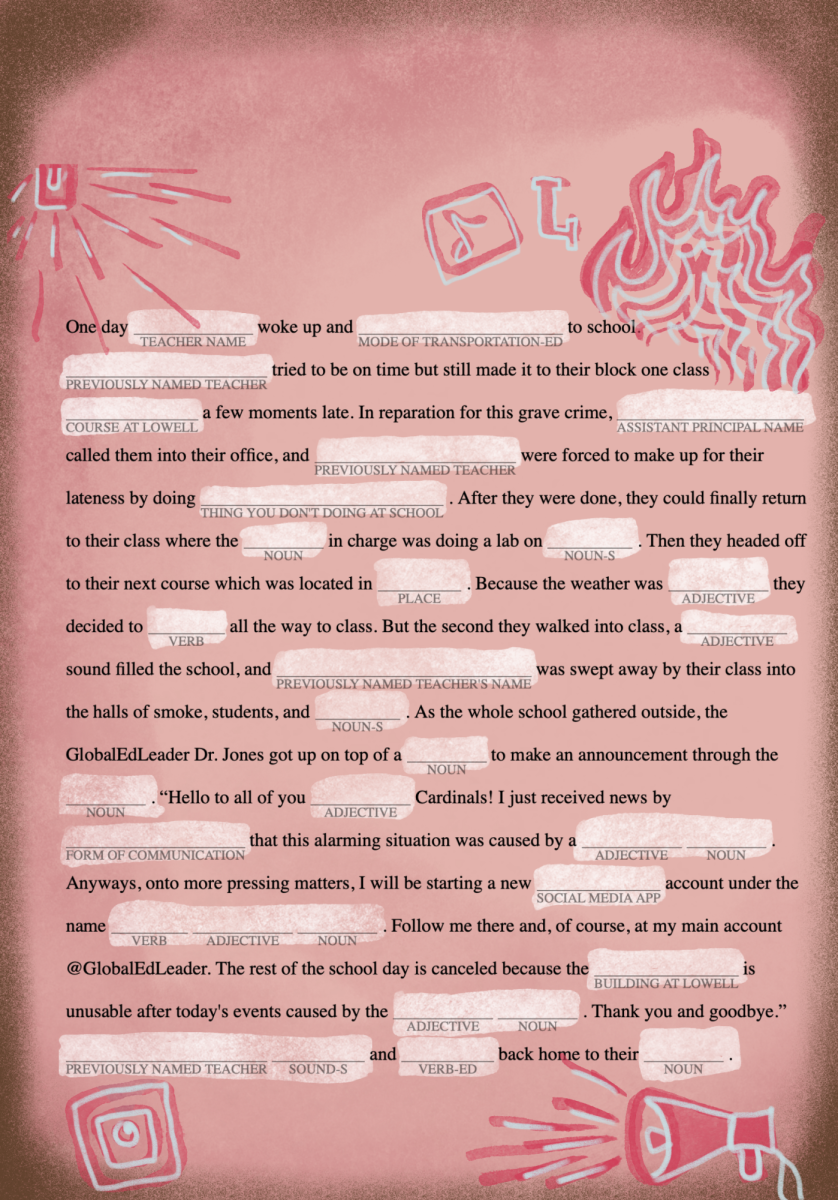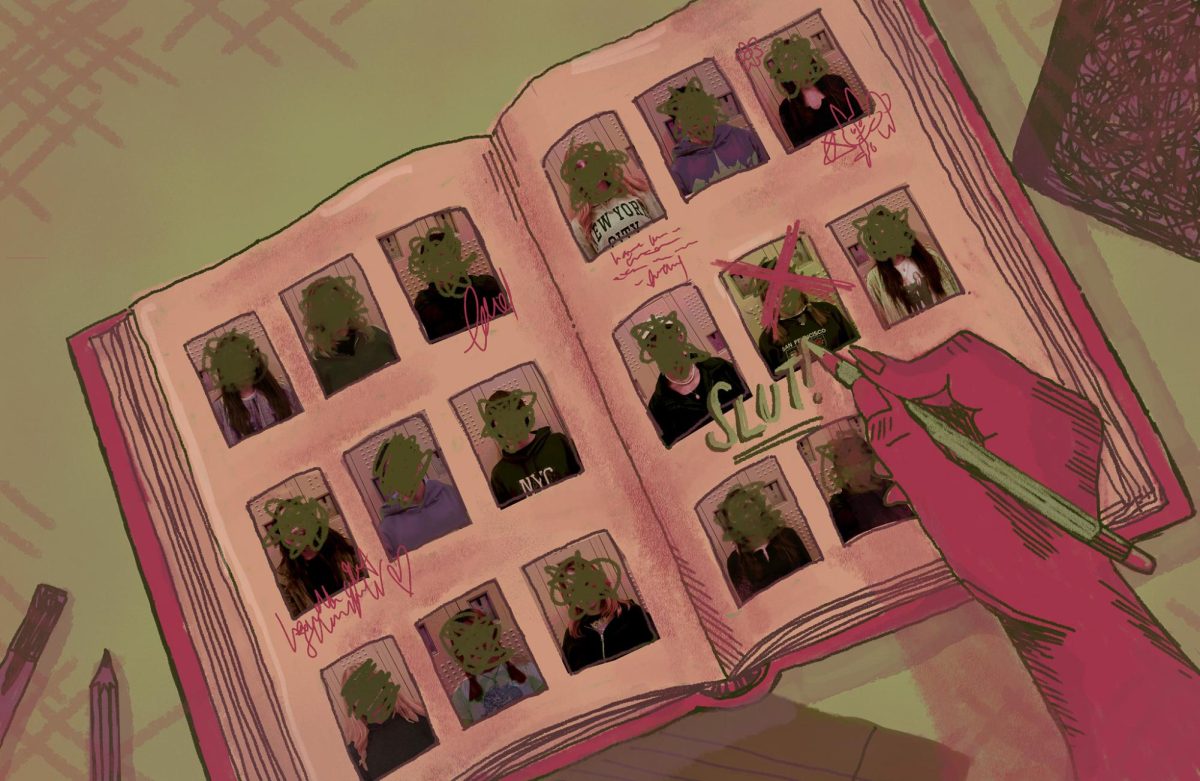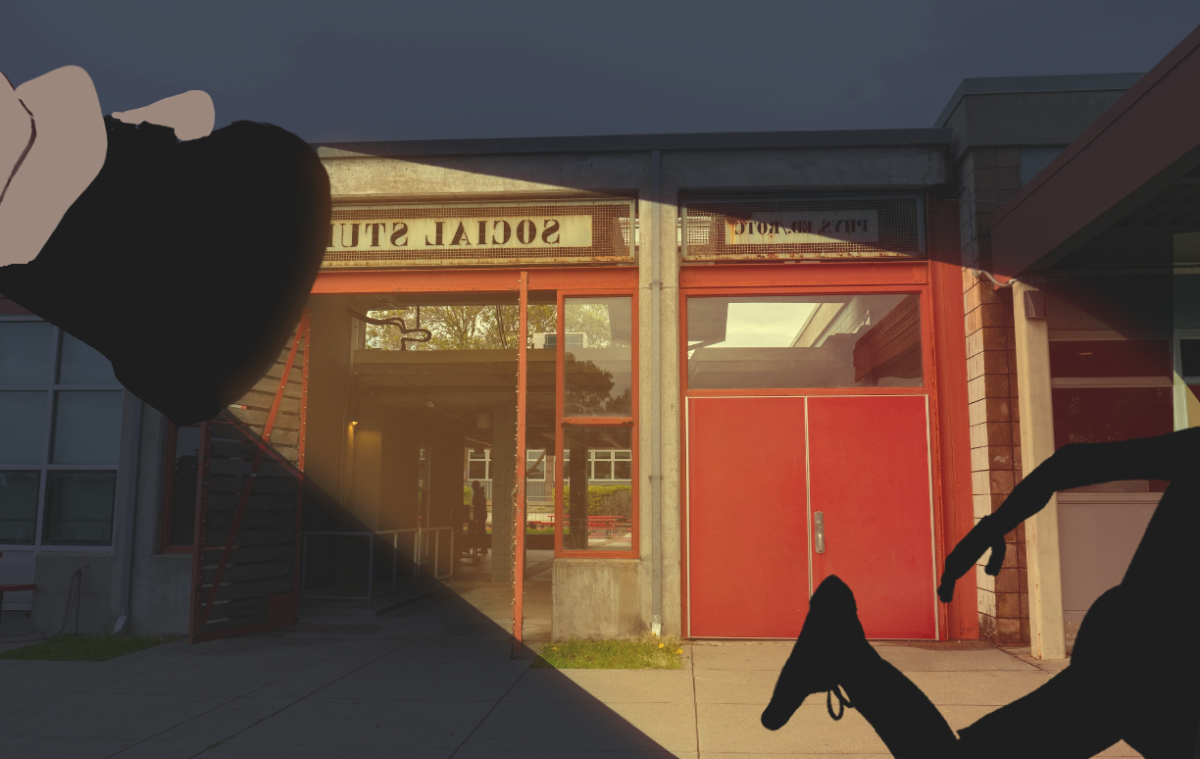When Kyle, a junior under a pseudonym, walks into Westfield San Francisco Centre with his friends, one of them dares him to steal something. While initially hesitant, he eventually gives in and slips a bag of Doritos into his jacket. Although Kyle believes that one small bag of chips won’t be a significant problem, he isn’t aware that this minor incident will be the beginning of his shoplifting addiction.
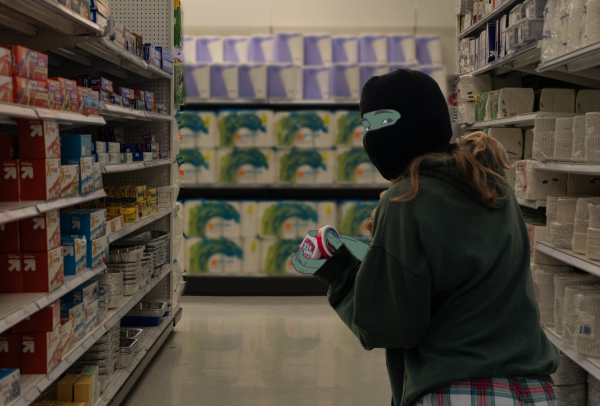
Kyle is among many Lowell students who have turned to shoplifting.
With shoplifting on the rise in San Francisco, a survey conducted by The Lowell revealed an increase in shoplifting among Lowell students. While stealing out of necessity may be the justification for some shoplifting, more students at Lowell fall victim to peer pressure and shoplifting addiction. Some argue that shoplifting is just a phase most teenagers go through, and while it has repercussions for both business and shoplifters, many students who shoplift don’t fear the consequences of their actions. There is much debate about the best way to prevent stealing, but without an explicit reason to stop, many students continually shoplift.
Shoplifting is a prevalent issue among teens. According to the Council on Criminal Justice, major cities across the United States have experienced an increase in shoplifting since 2019. Although the study shows that San Francisco has seen a 35 percent decrease in shoplifting in that same time period, shoplifting still appears to be on the rise among Lowell students. Compared to a survey conducted by The Lowell in March 2019, an updated survey revealed that the number of students at Lowell who have shoplifted has increased by 6 percent since 2019, while the number of people who knew someone who had shoplifted increased more drastically, from 54 percent in 2019 to 66 percent this year.
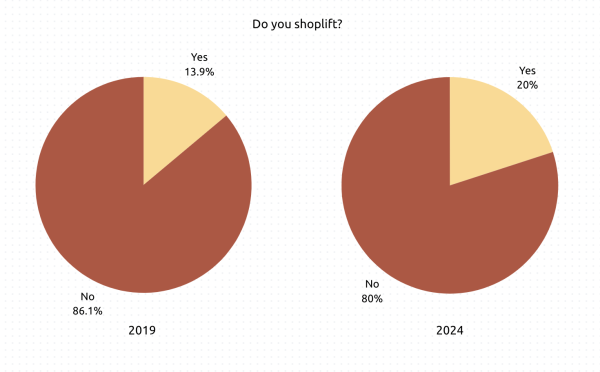
The impacts of shoplifting are visible throughout stores like Safeway, which now requires shoppers to scan receipts to exit self-checkout, and Target, which has continued locking products behind plexiglass to combat theft. Despite these measures, our anonymous survey found that 64 percent of respondents believe that shoplifting in San Francisco is “easy” or “very easy.” Target has also blamed high rates of theft for the closure of its Folsom Street store, although later reports have called the accuracy of Target’s claims into question. Regardless, measures like locked items and store closures affect the entire community.
Many students begin shoplifting due to the desire to feel included in social activities with friends. According to Bryan Burton, a Professor of Criminology and Criminal Justice studies at Sonoma State University, peer pressure and students’ social lives play a major role in shoplifting among students. “At an older age, friends become more important, so you could be learning from your friends that it’s okay to shoplift,” Burton said. Rachel, a senior using a pseudonym, admits that she began shoplifting to feel closer to her friends. “I wanted to do it because I just wanted it to be included,” she said. As she began stealing from stores more frequently, she created stronger bonds with friends and gained a sense of community — where she and others would exchange advice on getting around security systems as well as their various stolen goods. “Everyone shares their strategies to gain knowledge,” Rachel said. “Once you do it, you can share hauls, and it feels nice. But, when you’re not doing it, you’ll feel left out if you don’t get anything.”
Students also steal to experience the adrenaline rush from engaging in an illegal activity. According to WebMD, stealing may cause a mixture of emotions, such as “a sense of pleasure and relief” or even “guilt or remorse after the act.” Slim, a senior under a pseudonym, began stealing during her sophomore year and recalls walking out of a store with a bottle of alcohol during her first shoplifting excursion. As she continued, her tendency to shoplift became addictive. “We stole alcohol, and it was very thrilling. It got me hooked on stealing,” Slim said. Similarly, Rachel, who began stealing during her junior year, remembers feeling excited after shoplifting for the first time. “It just felt nice,” she said. “Once you take something, it feels like a little boost in dopamine with no financial consequences.”
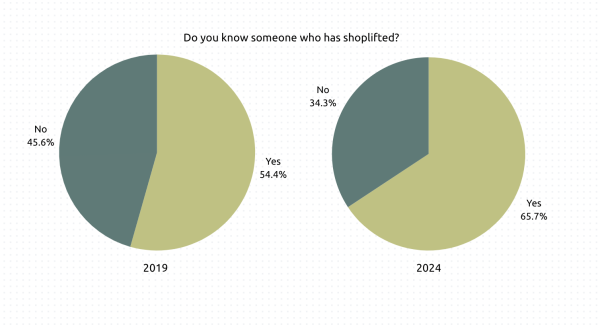
Many who shoplift justify their actions by arguing that large chain stores like Target can afford the theft. Burton also said that he had noticed this sentiment throughout his studies, adding that students often shoplift because they feel that their one act of shoplifting would not affect anything in the long term. “For stores like Target, even though they have guards, I feel like it doesn’t really matter,” Slim said.
Some students, including Kyle, believe that San Francisco’s lenient crime policies are responsible for the high number of shoplifting and other low-level crimes. He alluded to CA Penal Code 459.5, which, following the passage of Prop 47 in 2014, downgraded thefts below $950 to misdemeanors instead of felonies. “I heard that in the state of California, you can steal up to $900 without severe consequences,” Kyle said. Recently, state lawmakers and California Governor Gavin Newsom have called for increasing penalties for repeat and organized shoplifting. Assembly Bill 1772 is a key component of this work. The bill would require those repeatedly convicted of shoplifting or petty theft to receive county jail sentences of one to three years. The bill would require voter approval before taking effect.
However, the fear of being caught has already stymied their behavior. After being caught taking alcohol from Whole Foods with her friends, Slim’s shoplifting was catching up to her. “I had to take a little tolerance break after that incident because I realized I could no longer enter any Whole Foods,” she said. “I was too scared.” Other students, including Rachel, have set off security detector alarms at stores like Urban Outfitters as she was about to exit. Although she got away with her stolen items, being confronted by store workers has scared her. Additionally, she admits being deterred from shoplifting after watching social media posts claiming stores document multiple instances of shoplifting before pressing charges when an individual reaches a certain dollar value. “I saw a TikTok about Target warning shoplifters about being caught, so I stopped [stealing there],” Rachel said.
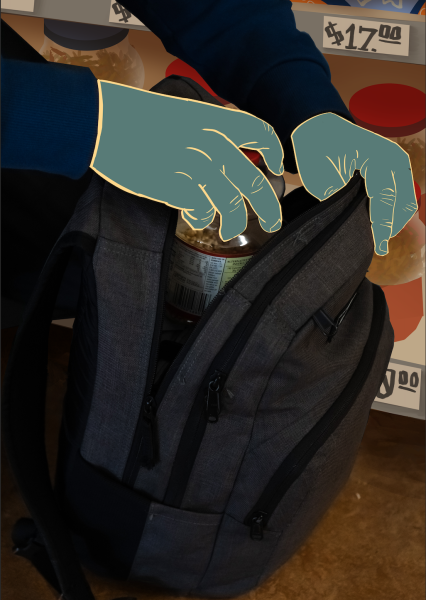
Experts and students see solving the shoplifting problem differently. Burton looks at the issue through a societal lens of shoplifting. “I think if we provided more of a safety net for people, they’d feel less like they need to steal,” said Burton. “More health care and housing are ways that we can stop it.” On the other hand, students like Slim see teenage shoplifting on an individual level. “My philosophy is that everyone goes through a little phase,” she said. Slim also said that her getting caught at Whole Foods made her slow down and eventually stop shoplifting, making her think that better security would prevent shoplifting in the future. “The Whole Foods scare kind of made me want to stop,” she said. She remembered a lack of competent security during her previous experiences shoplifting and how that contributed to her decision to shoplift. “I don’t think they really care even if there are guards,” Slim said. Kyle agreed that the lack of adequate security was certainly concerning. “It’s definitely easy to get away with it in San Francisco,” he said. “Obviously, there are security guards, but it’s very easy to get past them.”
Burton believes that creating ties between young people and their communities is another key way to reduce shoplifting. San Francisco has attempted to provide connections for young people through initiatives such as Mayor London Breed’s Opportunities for All, as well as the San Francisco Recreation and Parks Department’s Workreation program, which both provide paid work experience for teens. A study by the Brookings Institute found that summer job programs such as those offered by the city can reduce instances of property crime like shoplifting by 57 percent.
As petty theft is on the rise among teenagers, some students like Kyle will continue their path, while others like Slim and Rachel have grown out of shoplifting. Kyle, who doesn’t fear the consequences of shoplifting, will stick to his compulsive behavior. “I don’t think I would stop [stealing] just because I got caught [once],” he said. “Even if I got caught, I’d just be left off with a warning.” On the other hand, both Slim and Rachel stopped shoplifting, noticing how meaningless their actions seemed to be after they reflected on their actions. “I’ve definitely stopped shoplifting,” Slim said. “I kind of learned it was not really necessary.” Rachel agrees with this sentiment. “It feels really good when you don’t do it anymore,” Rachel said. “You kind of see how unnecessary it is when you did it.”









